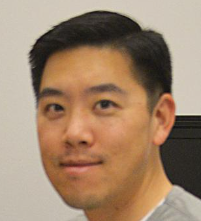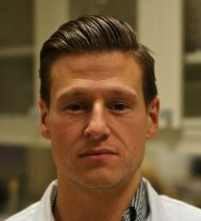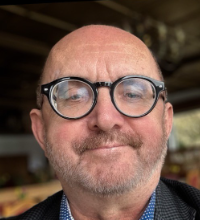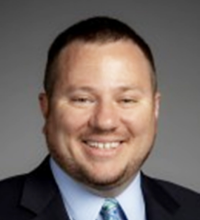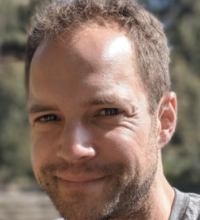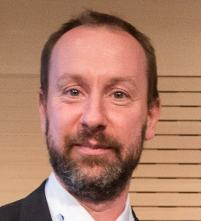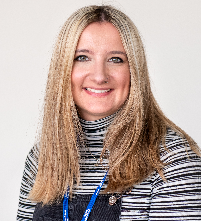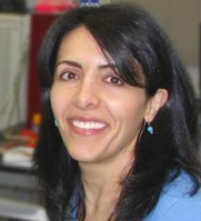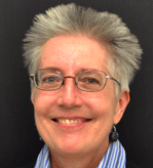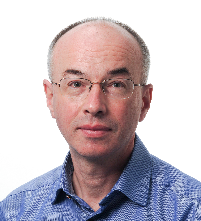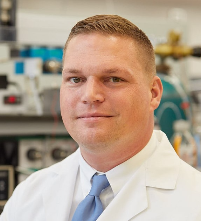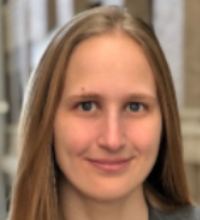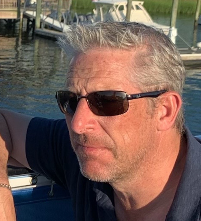MSACL 2024Monterey, CA : March 17-22 |
Agenda
|
Agenda (Preliminary) - View Program
Tuesday, March 19
Time |
Sessions |
||||||
|---|---|---|---|---|---|---|---|
800 |
Short Course Breakfast Location: Club Room (Portola Hotel > Ground Floor)
|
||||||
2130 |
Registration Desk Open Location: Serra Foyer (Conference Ctr > Ground Floor)
|
||||||
1200 |
Short Course : LC-MSMS 101 : Getting Started with Quantitative LC-MSMS in the Diagnostic Laboratory Location: De Anza 2 (Portola Hotel > Ground Floor)
|
||||||
1200 |
Short Course : LC-MSMS 201 : Practical LC-MS/MS Method Development and Bioanalytical Method Validation for Clinical and Non-Clinical Samples Location: Ironwood 2 (Portola Hotel > 3rd Floor)
|
||||||
1200 |
Short Course : LC-MSMS 203 : Validation of Quantitative LC-MS/MS Assays for Clinical and Academic Use Location: De Anza 3 (Portola Hotel > Ground Floor)
|
||||||
1200 |
Short Course : LC-MSMS 302 : Advanced LC-MS/MS Method Development, Method Troubleshooting and Instrument Operation Needed in Developing Successful Methods for Molecular identification and Quantitation in the Clinical Lab Location: Steinbeck 2 (Conference Ctr > 2nd Floor)
|
||||||
1200 |
Short Course : Data Science 101 : Breaking up with Excel: An Introduction to the R Statistical Programming Language Location: Colton 1/2 (Conference Ctr > 2nd Floor)
|
||||||
1200 |
Short Course : Data Science 201 : Flexing with R : Databases to Dashboards Location: Colton 3 (Conference Ctr > 2nd Floor)
|
||||||
1200 |
Short Course : Data Science 203 : Machine Learning : A Gentle Introduction Location: Bonsai (Portola Hotel > Ground Floor)
|
||||||
1200 |
Short Course : Sample Preparation 201 : Sample Preparation and Alternative Matrices for LC-MS Assays Location: Redwood 2 (Portola Hotel > 3rd Floor)
|
||||||
1200 |
Short Course : Metabolomics 203 : Practical Bioinformatics and Statistics in Metabolomics Location: Cottonwood 1 (Portola Hotel > 3rd Floor)
|
||||||
1200 |
Short Course : Clinical Proteomics 201 : Clinical Proteomics Location: Steinbeck 3 (Conference Ctr > 2nd Floor)
|
||||||
1200 |
Short Course : Clinical Proteomics 202 : MS-based Precision Diagnostics by Molecular Protein Analysis Location: Ironwood 1 (Portola Hotel > 3rd Floor)
|
||||||
1200 |
Short Course : Lipidomics 101 : Mass Spectrometry-based Lipidomics and Clinical Applications Location: Redwood 1 (Portola Hotel > 3rd Floor)
|
||||||
1200 |
Short Course : GlycoProteomics 101 : Clinical Glyco(proteo)mics by Mass Spectrometry Location: Cottonwood 2 (Portola Hotel > 3rd Floor)
|
||||||
1045 |
Workshop : Concepts in Histology and Histopathologic Diagnosis for Researchers Location: De Anza 1 (Portola Hotel > Ground Floor)
How pathologists diagnose human tissue samples differs markedly from how many researchers study them. Research approaches often seek to reduce two-dimensional tissue imaging to single cell data, i.e. cytometry-on-a-slide. However, these methods are complicated by technical aspects of tissue processing, and they may miss the overarching histologic patterns which underlie pathologic diagnosis. Thus, early engagement with pathologists is useful not only for obtaining tissue samples, but also for understanding structure-function relationships and relevance to disease. Furthermore, pathologists regularly integrate multiple data modalities to classify diseases, e.g. histology with antibody-based protein detection and DNA sequencing. Their understanding of the utilities of each modality within the larger diagnostic context is helpful for identifying potential roles for new technologies. |
||||||
1200 |
Get-the-Basics : MALDI Mass Spectrometry Imaging – A New Method in Pathology? Location: De Anza 1 (Portola Hotel > Ground Floor)
Matrix assisted laser desorption ionization (MALDI) mass spectrometry imaging (MSI) combines the excellence in molecular characterization of mass spectrometry with microscopic imaging capabilities of stained tissue samples, enabling the precise location of different analyte classes (e.g., proteins, peptides, lipids, glycans) directly within intact tissue. In particular in the field of pathology, that can aid in tumor diagnosis, tumor subtyping, biomarker identification, prognostic prediction, and characterization of tumor margins during tumor resection procedures. Since MALDI MSI goes far beyond microscopy, it is ideal for these endeavors. It can generate molecular maps of tissue sections that can elucidate the underlying biochemistry or provide information on how therapeutics or toxins influence the function or misfunction of an organ. Thus, it has the potential to overcome limitations of other approaches in the identification and routine diagnostic measurement of new marker molecules/profiles. Different applications in the field of pathology/ oncology will be presented that highlight possible applications of MALDI MSI in Pathology. Combining MALDI MSI, histology, and statistical analysis allows for reliable and fast subtyping in a number of different tumor types while also conserving material that could be used for additional testing. |
||||||
1400 |
Lunch On Own or at Industry Workshop Location: Off-site
Alternatively attend an lunch industry workshop. |
||||||
1345 |
Industry Lunch Workshop : Agilent Technologies Location: San Carlos 3 (Marriott > Mezzanine | Stairs from Lobby or SkyBridge from Conference Ctr)
|
||||||
1345 |
Industry Lunch Workshop : Ionpath Location: San Carlos 4 (Marriott > Mezzanine | Stairs from Lobby or SkyBridge from Conference Ctr)
|
||||||
1600 |
Workshop : Design of Experiments for Optimization of LC-MS Clinical Assays Location: Steinbeck 1 (Conference Ctr > 2nd Floor)
Objectives The objective of the workshop is to provide an introduction into design of experiments (DoE) for clinical application with special focus on optimization of MS-based clinical assays. The workshop is focused on practical implementation of DoE and will demonstrate how method development of sample preparation and UPLC-MS/MS method for quantification of clinical biomarkers can become much more efficient by utilizing DoE. Summary Design of experiments (DoE) is an efficient tool for development and optimization of UPLC-MS/MS platform for quantification of biomarkers in complex biological matrices. The UPLC-MS/MS platform is composed of several processes which involve many experimental factors that need to be simultaneously optimized to obtain a true maximum sensitivity with adequate resolution at minimum retention time. DoE offers a practical approach for performing experiments in accordance with a predefined plan, modelling by empirical functions, and graphical visualization. Basic concept of DoE will be presented with emphasis on practical implementation of DoE which includes the three main stages, screening, optimization, and robustness testing. To demonstrate the benefit of DoE, two case studies will be presented. The first case is DoE optimization of sample preparation in bottom-up targeted protein workflow. The second case is DoE optimization of UPLC-MS/MS assay for clinical diagnostic and therapeutic drug monitoring of patients with adenine phosphoribosyltransferase (APRT) deficiency. A polynomial model which corresponds to the objective of the case study is specified and an experimental design that supports the selected model is generated. Significant factors were studied via central composite design and related to responses utilizing partial least square regression. Both cases showed that DoE is an excellent tool for optimization of sample preparation for biological samples and UPLC- MS/MS quantification method for clinical biomarkers. A significant reduction of sample preparation time was achieved with increased yields for selected peptides and a reliable UPLC-MS/MS assay for simultaneous quantification of urinary 2,8-dihydroxyadenine (DHA) and adenine was optimized efficiently with DoE. Syllabus
• Design of Experiments (DoE) – Get it right from the beginning |
||||||
1600 |
Workshop : Study Design for Metabolomics Location: Steinbeck 2 (Conference Ctr > 2nd Floor)
CANCELLED : Due to the presenter being unable to attend (March 2, 2024). Objective This workshop will address study design challenges for metabolomics that must be performed prior to metabolomics measurement and data processing. Summary The workflow of a metabolomics experiment follows several interdependent phases. The scientific question determines the study model and the type of metabolite detection. Pilot studies are often performed to validate the research question and the analytical approach chosen. Sample identity, preanalytics, sample matrix, confounders, timing, randomization, budgeting and resources, contingency plan, legal issues, governance, and replication are important considerations in the study design phase. Metabolomics requires special quality control and quality assurance procedures because of the many variables involved in sample preparation and analysis. Analytical procedures include quality assurance, matrix-matched reference samples, and analytical quality control. Data validation is performed to verify technical parameters, evaluate sample quality, and identify outliers. In the initial phase of a project, it is critical to define the dataset to be released, which must include metabolomics data, SOPs, assays used, randomization type, normalization structure, and data imputation protocols. Specific Topics
• understanding cohort structure |
||||||
1600 |
Workshop : Ion Mobility in the Clinical Lab: What's Next? Location: Steinbeck 3 (Conference Ctr > 2nd Floor)
Objectives Attendees will learn the basic principles of ion mobility, benefits and challenges to routine implementation in the clinical lab, method development, and current applications. Objective 1: Understand the basic operating principles of IMS and the differences between the different techniques (e.g., drift tube, traveling wave, FAIMS/DMS, etc.) Objective 2: Recognize the benefits and limitations to incorporating IMS into conventional LC-MS/MS workflows in the clinic. Objective 3: Become familiar with method design and development and current/future applications. Summary Ion mobility-mass spectrometry (IM-MS) has become a cornerstone of biomedical analysis, with applications ranging from isomeric small molecule differentiation to the study of protein structure. Despite its advantages, IM-MS has yet to see routine implementation in the clinical lab due to challenges in quantitation, limited universal standards, data processing software, and reproducibility across different IM techniques/vendor platforms. This workshop will introduce common IM techniques and their operating principles, expanding upon the benefits of incorporating IM into conventional LC-MS/MS workflows and discussing its challenges. More importantly, recent advances in hardware, software, and data processing approaches will be highlighted. Finally, an overview of current applications (including metabolomics, lipidomics, and proteomics examples) will be provided. Syllabus
1. Basic Operating Conditions of IMS: Electric field application, experimental conditions (temperature,
pressure, gas composition) |
||||||
1600 |
Workshop : Isotope Ratio Mass Spectrometry: The Dark Horse of Clinical MS? Location: Colton (Conference Ctr > 2nd Floor)
Objectives Participants will 1) learn the basic principles of isotopic effects and be able to explain how they can be used to study human metabolism, including drug metabolism, and 2) be able to explain how emerging measurements on bioanalytical mass spectrometers such as ESI-Orbitrap systems can perform accurate isotope ratios on molecular species. Summary Isotope ratio mass spectrometry (IRMS) measures the relative abundance of different isotopes of an element, providing valuable insights into the molecular mechanism of metabolic diseases, drug metabolism, and links between nutrition and health. In classical IRMS complex molecules are converted to low molecular weight gases, thus losing important intramolecular isotopic information. IRMS is now becoming possible on bioanalytical mass spectrometers such as ESI-Orbitrap systems.These recent advances give access to isotopic information in intact biomolecules, drugs, and metabolites. This workshop will introduce the principles that cause isotopic effects in the human body, introduce the technologies used to make highly precise measurements of isotope ratios in metals and biomolecules, and illustrate how recent advanced on doing IRMS using ESI-MS instrument can open new avenues of IRMS for biomedical and clinical research application. Methods and studies we highlight will help stimulate thought on new application areas for IRMS in biomedical research and eventual clinical diagnostics. Topics Covered
* Principles that cause isotope effects in the human body |
||||||
1600 |
Workshop : Surgical Mass Spectrometry – Delivering the Technology to the Operating Room Location: De Anza 1 (Portola Hotel > Ground Floor)
Objectives To identify methods to deliver mass spectrometry guided surgery to become routinely used in the clinical interventional world. The workshop will focus on the interpretation of clinical information/data and how this should be fed back to healthcare professionals and ultimately patients. The workshop will highlight the limitations of current technologies and developments enabling clinical adoption. Summary The need for in-situ, real time tissue identification has been dramatically increasing with the development and deployment of robotic and other high-precision surgical approaches. While surgical mass spectrometry techniques have been continuously developed, published, and demonstrated in human surgical theatres, none of these approaches have reached regulatory approval and routine application in surgery. We will use this interactive setting to discuss overcoming current roadblocks to delivering technology for patients and healthcare professionals. The workshop will give an overview of the current mass spectrometry technology developed and the strengths and weaknesses in each approach. This will be followed by discussing the embedding of the approach both into existing oncology and clinical diagnostic systems. Using Mass Spectrometry in surgery will change how interventional cancer care is delivered, hence it is important to ensure data tools are developed which can be relied on. Delivery of the obtained clinical information in the operating theatre is also important to explore. As part of this workshop, we will discuss data visualisation strategies such as in the virtual reality space, delivery of feedback to the clinical healthcare professionals and tools developed to advance usability, such as navigation. Data interpretation in the wider context of clinical oncology will also be explored. Syllabus/Topics
• Surgical mass spectrometry methods – strengths, weaknesses, applications and future perspectives |
||||||
1600 |
Workshop : A Path from Discovery to Verification and Validation of Biomarkers in Clinical Samples Location: De Anza 2 (Portola Hotel > Ground Floor)
Objectives
A case study approach will be used to demonstrate the following: Summary In this workshop, we will describe in detail the path from collecting and utilizing comprehensive information from various sources of discovery proteomics analyses to the creation of targeted proteomics methods for the verification of protein biomarkers. This workshop will be divided in two sections. In the first section, a discovery proteomics strategy will be discussed with a focus on the study design, the data acquisition approach, and the data analysis pipeline for biomarker selection. An example case study will be presented and discussed. In the second section, the attendees will be guided through a step-by-step instruction on how to utilize pertinent information acquired from the discovery approach to develop a targeted proteomics method. A brief introduction on Skyline and instructions on working with spectral libraries in Skyline will be included. Furthermore, technical aspects such as the choice of instrument, flowrate and acquisition strategy at every step of the targeted proteomics assay development will be tackled and discussed. |
||||||
1600 |
Workshop : Accreditation of Clinical Mass Spectrometry Laboratories Location: De Anza 3 (Portola Hotel > Ground Floor)
Objective To explain the basic principles, requirements, and processes of laboratory accreditation; with examples and a focus on laboratories that are in transition from research to patient care. Summary Many more countries are now requiring clinical laboratory accreditation to ISO 15189 or alternative standards. Accreditation presents a particular challenge for highly complex in-house testing such as mass spectrometry, but can also offer significant potential for improving processes and overall performance. Advantages and disadvantages of accreditation, risks, opportunities, and preparation strategies will be discussed. Extensive experience from both the perspective of the client and the assessor (inspector) will be shared. Our personal experience is with laboratory accreditation in the United States and the EU, but we will attempt to present these concepts from a global perspective. |
||||||
1630 |
Coffee Break Location: Steinbeck Foyer (Conference Ctr > 2nd Floor)
|
||||||
1650 |
Welcome & Scientific Orientation Location: Steinbeck Ballroom (Conference Ctr > 2nd Floor)
|
||||||
1740 |
Michael S Bereman Award for Innovative Proteomics : From Research to Routine Clinical Care: The Winding Road of New Protein and Peptide Biomarkers Location: Steinbeck Ballroom (Conference Ctr > 2nd Floor)
What does it take for a biomarker to make the leap from research to the clinical laboratory? Through the lens of biomarkers for Alzheimer’s Disease and related neurodegenerative disorders, we’ll discuss the various steps of identifying promising biomarkers, developing and optimizing mass spectrometry assays to measure these biomarkers, and considerations for moving assays from research to the clinic. We’ll cover lessons learned from experience in the early development stages of mass spectrometry assays for neurofilament light (NfL), including the importance of selecting the right target peptides, as well as the role of multiplexing to create biomarker panels. We’ll also discuss perspectives from the clinical lab, such as understanding ROC curves, the role of prevalence, and the importance of having clear intended use criteria. This presentation will highlight the benefits of working collaboratively and how coupling perspectives from both basic research and the clinical laboratory can help advance patient care. Declaration of Competing Interests Dr. Budelier receives expenses and/or honoraria from Waters, Roche Diagnostics. She is co-inventor and receives licensing income from patents covering multiplexed assay methods. The presenter will not mention or discuss Specific Products or Services of the company(ies) or technology listed in their Financial Disclosures, or of ANY other commercial entity, except in general, generic terms ensuring balance and impartiality. |
||||||
1830 |
Distinguished Contribution Award Lecture : Grit and Guinness; Confronting Bias and Imprecision without Compromising Scalability Location: Steinbeck Ballroom (Conference Ctr > 2nd Floor)
This lecture will describe the vicissitudes and victories in the presenter's peregrinations to provide analytically and clinically accurate results to patients. Strategies learned on this journey, yielding a symphony of sample preparation, separation science and mass spectrometry technologies at the scale of a clinical reference laboratory, shall be discussed. Declaration of Competing Interests Dr. Grant declares that he receives salary from LabCorp and owns stock in LabCorp. He consults for HepQuant. He shall not speak to product offerings for HepQuant but will discuss scientific work and learning derived from my time at Labcorp and its wholly owned subsidiary, Esoterix Endocrinology. |
||||||
2130 |
Opening Exhibits Reception Location: Exhibit Hall - Serra (Conference Ctr > Ground Floor)
|
||||||
2100 |
Booth Tours Location: Exhibit Hall - Serra (Conference Ctr > Ground Floor)
Sign-up and meet at Tour Rally Point in Booth 8. Recommended for first-time attendees. Open to all. |
||||||
2330 |
MSACL Hospitality Lounge Location: Club Room (Portola Hotel > Ground Floor)
Drinks provided. |
||||||
| Monterey Conference Center Closes Location: Serra Foyer (Conference Ctr > Ground Floor)
|
|||||||


